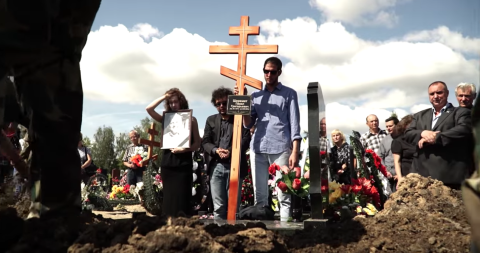
The Organized Crime and Corruption Reporting Project (OCCRP) and its Ukrainian partner, Slidstvo.Info, have won this year’s Investigative Reporters and Editors (IRE) Medal for their work on the investigative documentary “Killing Pavel” on the unsolved murder of a Belarussian reporter. The award is the “highest honor IRE can bestow for investigative reporting.” It will be presented at the 2018 IRE Conference in Orlando, Florida, on June 16.
It was 8:45 on the morning of July 20, 2016, when the car bomb ripped apart a red Subaru at an intersection in the center of Ukraine’s capital Kyiv. The driver, journalist Pavel Sheremet, never stood a chance.
Sheremet had worked in three former Soviet Republics. He was born in Belarus, where he started his journalistic career. From Minsk, he moved to Moscow, and then to Kyiv. His critical and independent reporting, which earned him beatings and jail time, had been a thorn in the side of authorities in all three countries.
His murder shocked the world.
It didn’t take long for the usual, reassuring statements: Ukrainian President Petro Poroshenko called for law enforcement to find and punish those behind the attack. He announced a special task force, with the investigation to be lead by the national police chief.
Weeks and months passed, without any results.
Reporters from the Organized Crime and Corruption Reporting Project (OCCRP) – a longtime partner of ICFJ – and their Ukrainian partner organization, Slidstvo.Info, decided to conduct their own investigation.
For over nine months, they looked into both the murder and the police probe – and recorded every step of the way.
The documentary “Killing Pavel” is the result of these efforts. In exclusive footage and interviews, the film reveals crucial information about the killing that never found its way into the official investigation – and asks why.
The reporters walked the streets of Kyiv, identifying dozens of surveillance cameras and collecting hundreds of hours of video footage apparently overlooked by the police. They used forensic analysis to track down vital new witnesses, demonstrated flaws in the police investigation and unearthed documents through a confidential source that confirmed a man at the scene of the crime was a former or current member of Ukraine’s main intelligence agency, the Security Service. (Ukrainian officials did not respond to interview requests from the journalists, but said that Sheremet was not under state surveillance.)
Today, nearly two years after Pavel Sheremet’s assassination, the case is still open. No one has been brought to justice.
IRE judges said the journalists showed "incredible tenacity and courage” in reporting this riveting documentary. Watch “Killing Pavel below.